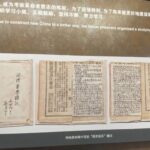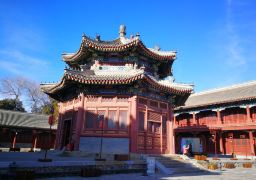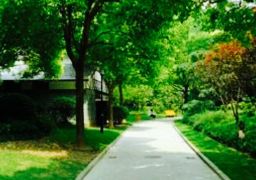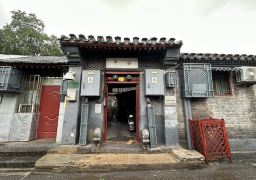Liu Bei, the emperor of the Shu Kingdom, avenged his sworn brother Guan Yu after his defeat and death at Maicheng, disregarding the dissuasion of his ministers and launching a military campaign against the Eastern Wu. On the way, his other sworn brother, Zhang Fei, the vanguard of the Wu campaign, was killed by the traitors Fan Jiang and Zhang Da. Enraged, Liu Bei pressed on without proper planning. In the summer of the second year of the Zhangwu era, June, his forces were defeated by the Eastern Wu general Lu Xun, who used a fire attack to burn seven hundred miles of military camps, resulting in a defeat at Yiling Xiaoting. Consequently, Liu Bei retreated to the city of Baidi. With the Three Kingdoms long divided, the loss of his two brothers, and his army severely weakened, Liu Bei, burdened by state affairs and personal vendettas, fell ill from worry and grief. Sensing the imminent danger, he summoned his Prime Minister, Zhuge Liang, to his side. In the Yong’an Palace, Liu Bei entrusted his son, Liu Chan (A Dou), to Zhuge Liang before he passed away. Since then, the city of Baidi has become even more famous due to this widely told story. Today, the Tu Gu Hall is located in the front hall of the Baidi Temple. To recreate the tragic history of Liu Bei entrusting his son to Zhuge Liang over 1700 years ago in the Yong’an Palace, the Baidi City Museum invited sculptor Mr. Zhao Shutong to create a large group of colored sculptures of Liu Bei entrusting his son in 1984. The 21 statues, each over 2 meters tall, depict the Shu Kingdom’s monarchs and ministers with vivid shapes, diverse postures, distinct personalities, and a strong artistic appeal. Open all year round from 08:30 to 19:00, with specific business hours subject to daily opening conditions.
Tu Gu Hall
Liu Bei, the emperor of the Shu Kingdom, avenged his sworn brother Guan Yu after his defeat and deat[...]









